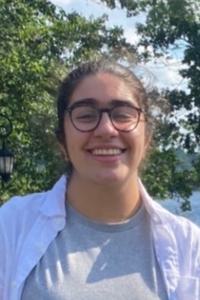Six months after graduating, 97% of the members of Wellesley’s class of 2023 were employed, enrolled in graduate school, involved in a formal service/volunteer program, or serving in the military, according to the College’s recently-released first destination survey, an annual survey that measures student outcomes.
Over 72% reported being employed in fields including consulting, business, and finance; health care and life sciences; education; internet, software, technology, and engineering; and nonprofits and NGOs. Renewable energy made the list of top employment industries for the first time, with 3.38% of recent graduates entering the field.
Jennifer Pollard, Lulu Chow Wang ’66 associate provost and executive director of Career Education at Wellesley, says the knowledge rate, or the percentage of graduates whose outcome data was verified, for this year’s survey was 90%—an all-time high.
Wellesley’s Lulu Chow Wang ’66 Center for Career Education, Pollard says, “seeks not just to help students find a first step post-graduation, but to support them in building careers and lives aligned with their skills, strengths, and values.” Over 98% of graduates from the class of 2023 described their outcome as an opportunity to learn and grow, and nearly 95% described their outcome as an opportunity to engage in meaningful work.
“These two statistics showcase the impact of not only Wellesley Career Education but a larger campus community of faculty and staff working together to ensure student success and equitable access to opportunity for all,” Pollard says.

Alia AlShaye ’23 agrees. A biology major and religion minor, she is now a research assistant in Dr. Stuart Orkin’s lab at the Dana-Farber/Boston Children’s Cancer and Blood Disorders Center, where she investigates small molecule therapies for sickle cell disease.
“Wellesley was instrumental in my development, both academically and personally. The College’s rigorous academic environment and supportive faculty laid the foundation for my research career,” she says.
“As an international student in the U.S., I faced significant barriers in accessing fully-funded internships in research,” AlShaye says. These limitations often constrained her options regarding which internships and positions she could consider. But Career Education helped with funding and helped broaden her internship opportunities. “This support was crucial in creating a level playing field, enabling international students like myself to engage in high-caliber research opportunities typically available exclusively to U.S. citizens.”
